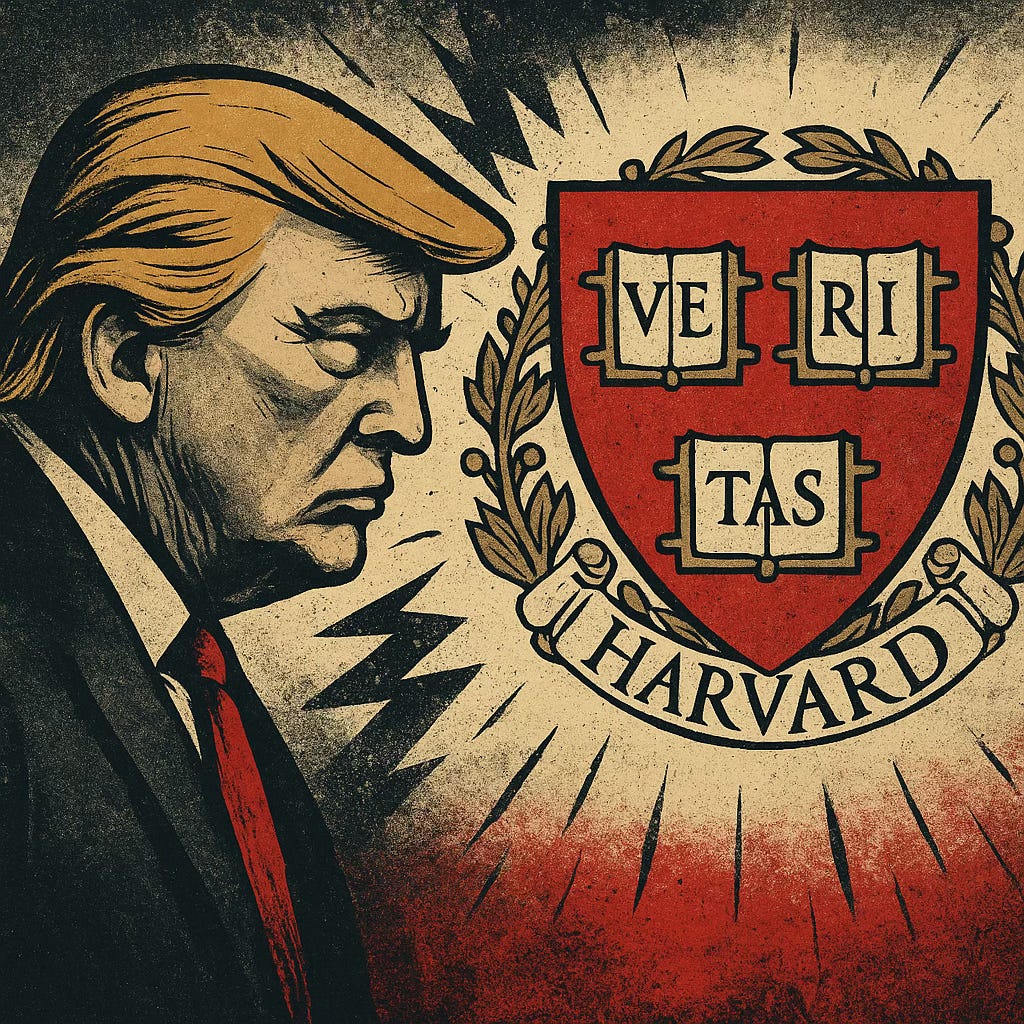Earlier this spring, Donald Trump declared war—not only on trade, but on academic excellence itself. The target was not vague ideology but Harvard University, a centuries-old symbol of scholarly prestige and independent thought. At issue was not just speech or policy, but the question of whether a place designed for thinking freely could still exist under the weight of politicized scrutiny.
The administration’s actions were sharp and symbolic: a freeze of over $2 billion in federal research funds and the suspension of Harvard’s right to enroll international students. These were not bureaucratic levers—they were weapons. Where ideas once flowed, fear now crept in through the funding ledger and immigration code.
More demands followed. The government called for leadership changes, alterations to admissions protocols, and audits of diversity and inclusion programs. It was not reform that was being proposed—it was restructuring by coercion. Harvard was being asked to compromise its principles in the name of compliance.
President Alan Garber’s refusal was unequivocal. His statement read less like a press release and more like a declaration of sovereignty: no institution committed to the life of the mind should be governed by political retribution. In this moment, resistance became the preservation of purpose.
The legal challenge that followed was equally firm. Harvard’s attorneys argued that the government’s actions violated constitutional protections and set a dangerous precedent for the independence of higher education. The lawsuit, however, is only the surface. The deeper issue is epistemological: can knowledge still exist freely in a world where ideology polices inquiry?
This confrontation is not about Harvard alone. It is about whether universities remain havens of curiosity or become factories of conformity. If politics sets the syllabus, learning ceases to be an act of exploration and becomes one of assimilation.
The revocation of the university’s ability to welcome international students was especially telling. It is more than a policy—it is a signal. The idea that foreign minds, voices, and perspectives are no longer welcome in one of the nation’s most influential institutions reflects a retreat from the global intellectual commons.
What is being targeted is not merely the institution but the infrastructure of complexity. Auditing diversity programs, for instance, reveals the underlying discomfort with difference itself—not just in origins or background, but in worldview. In a world that craves certainty, universities are being punished for housing ambiguity.
This moment echoes old philosophical tensions. As Schopenhauer wrote, “The discovery of truth is prevented more effectively… by prejudice than by ignorance.” The attacks on Harvard are not motivated by a desire for clarity, but by a fear of contradiction—of not controlling the narrative.
Meanwhile, the courts are now tasked with a high-stakes judgment: whether the executive branch can rewrite the soul of an academic institution. This is not merely jurisprudence—it is cultural prophecy. If the judiciary folds, the very notion of institutional independence weakens.
The deeper irony lies in the administration’s economic posture. Once champions of open markets, they now seek to monopolize meaning. In this light, academic autonomy becomes the last free market—a place where value is debated rather than dictated.
Universities across the nation watch anxiously. If Harvard can be bent, so can they. This is a collective moment of introspection, as faculties and boards weigh whether silence ensures survival or hastens submission.
To submit to political pressure is to turn classrooms into echo chambers. A mind trained to fear retribution will not think, it will conform. And a nation of conformity is a nation in intellectual decline.
This standoff also lays bare the stakes of governance in the digital age. Minds, not machines, are the terrain of control. In targeting the conditions of free thought, the state reveals that the true power struggle is epistemic—not military or economic, but existential.
For all its grandeur, Harvard now stands as a test case. The lawsuit it has filed may shape not only its future but the terms on which all institutions of learning operate. Will universities remain spaces of inquiry, or will they become extensions of the state?
In the end, the question is not whether Harvard wins or loses, but whether the principle of thinking without fear endures. The freedom to pursue truth is delicate—it does not survive well under the cold breath of power.
If we lose the university, we lose the last sanctuary where the future can be thought before it is lived. And in such a world, history is not made—it is just repeated.

